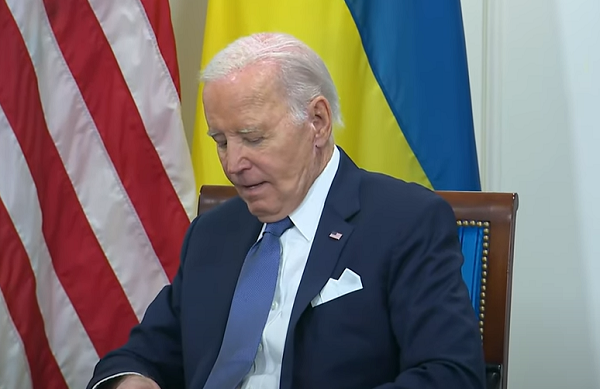A clause concealed within the extensive 280-page bill of the establishment’s Border Act stipulates that the highly publicized emergency border “shutdown” will only be implemented upon the authorization of the president’s homeland security.
Page 119 contains the unbelievable loophole:
“Whenever the border emergency authority is activated, the Secretary shall have the authority, in the Secretary’s sole and unreviewable discretion, to summarily remove from and prohibit, in whole or in part, entry into the United States of any alien identified in subsection (a)(3) who is subject to such authority in accordance with this subsection.”
The existence of the loophole transforms the ostensibly obligatory border shutdown into a presidential policy option that is contingent upon certain conditions. This option can only be implemented when there is a significantly higher number of migrants compared to the border emergency declared by President Donald Trump in his initial term.
By increasing the stipulated numbers and incorporating numerous exceptions, the legislation significantly raises the bar for a president to declare a border shutdown. This stands in stark contrast to the prevailing narrative in the media over the past few days.
“This RINO-Dem immigration deal is really a mass amnesty that essentially locks in 2 million illegals per year,” announced Donald Trump Jr.
Supporters of the legislation promoting migration are highlighting the shutdown catalyst as it serves as a compelling term for President Joe Biden and journalists to disseminate, aligning with the desires of the majority of Americans.
“It would give me, as President, a new emergency authority to shut down the border when it becomes overwhelmed,” Biden declared on January 26. “And if given that authority, I would use it the day I sign the bill into law.”
However, the specifics of the legislation indicate that the “mandatory” trigger will seldom be activated, excludes numerous migrants, has a three-year expiration date, and will ultimately have no effect due to the introduction of a completely new expedited asylum process that can swiftly grant citizenship to millions of economic migrants, enabling them to participate in elections by 2030.
As to the substance of the “border emergency authority,” it appears to be left to the discretionary whims of Secretary Mayorkas—who, I might add, is currently being impeached for failing to actually enforce existing law.
This is asinine. pic.twitter.com/3Q7Vj58odr
— Mike Lee (@BasedMikeLee) February 5, 2024
74 Billion for other countries and 20 billion to help Biden bring more illegals into America to vote for a Democrat uni party system! No wonder they crafted this in secret and want to vote on it this week before Americans find out!
— William Gheen (@ALIPAC) February 5, 2024
Now we know why Wall Street loves this border bill so much. It legislates cheap labor forever
— Josh Hawley (@HawleyMO) February 5, 2024







